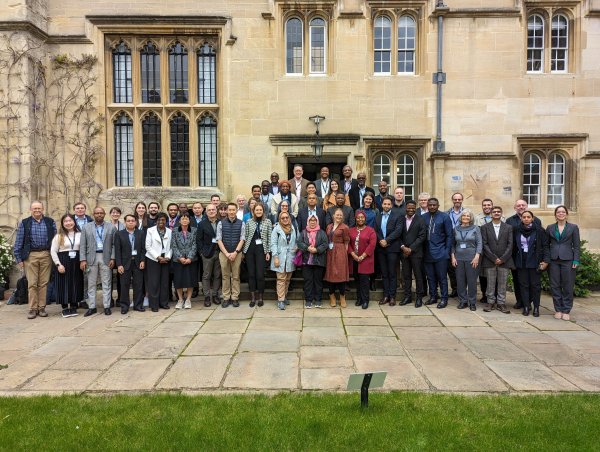Experts join forces to improve screening devices to detect substandard and falsified medicines
Experts from across the globe joined forces to discuss how screening technologies can be improved so they can be more widely used to detect substandard and falsified medical products.

Eighty participants from 27 countries across Africa, Asia, South-East Asia, Europe and America joined the hybrid workshop called ‘Dashboard Development and Diethylene Glycol/Ethylene Glycol Screening Technologies’at Jesus College, in Oxford, from April 9 to 12.
Hosted by IDDO-MORU-CGHR’s Medicine Quality Research Group (MQRG), participants were from medicines regulatory agencies in low-, middle- and high-income countries; experts on and developers of screening technologies and other key stakeholders, including the World Health Organization, Interpol, UNICEF, and the United States Pharmacopeia.
The group looked at the current evidence around screening technologies; set out what the knowledge gaps were and how information can be better shared with medicines regulatory authorities and other organisations to inform decisions on buying detection equipment.
Over the last three decades many portable medicine quality screening technologies have been developed, offering the potential for a more objective analysis of medicines in the field. Both the demand for such technologies and the number of scientific publications addressing these devices has grown and is expected to further grow.
New requirements for screening technologies are also evolving. Following incidents of paediatric medicine syrups containing diethylene glycol and ethylene glycol (DEG/EG) that have killed hundreds of children worldwide, interest in devices that can detect these contaminants has increased.
A further challenge for medicine quality regulatory authorities and other organisations is how to translate this research into policy to offer better guidance on the most suitable devices.
During the workshop interactive sessions and demonstrations and displays took place; these included:
- Developing a freely available digital guide on screening technologies to help with decision making
- MQRG’s work with chemists and physicists to detect diethylene glycol and ethylene glycol in pharmaceuticals using screening technologies
- Developing a ‘target product profile’ to enable development of specific devices to detect DEG/EG
- A roadmap for collaborative research
Attendees were also given a tour of the Museum of History of Science Museum 'April Fakes Day' exhibition about falsified medicines, which MQRG supported.
Head of MQRG Professor Paul Newton said: “The interactive sessions have shown the strong will for change, particularly in view of recent tragic poisonings that led to the death of hundreds of children in many countries.”
Researcher Julia Gabel added: “The workshop sessions initiated valuable and stimulating discussions and allowed the participants to exchange their views, connect and find future collaboration opportunities.”
Deputy Head of MQRG Dr Celine Caillet said: “It was a wonderful blend of participants from different countries and backgrounds, with great commitment and involvement.”
